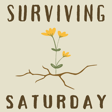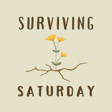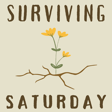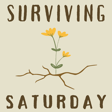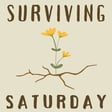
Rachael Clinton Chen (Part 1): Story, Suffering, and the God Who Meets Us
Some people come into your life and quietly, powerfully change its trajectory. For Wendy, that person was Rachael Clinton Chen.
In this first half of a two-part conversation, we sit down with Rachael — a pastor, teacher, and co-host of the Allender Center Podcast — for a conversation that’s rich with honesty, clarity, and care. We talk about what it means to be truly seen, why minimizing suffering is so common (especially in Christian spaces), and the small but brave turns that can lead us toward freedom.
Rachael shares pieces of her own story — from growing up in a fundamentalist church, to experiencing spiritual abuse, to slowly finding her way back to a more spacious and embodied love of God. She reflects on the disorientation that comes when relationships, especially those rooted in spiritual authority, become harmful — and how reclaiming our voice and agency is part of the healing journey. Along the way, we talk about power, trust, and the kind of theology that either binds us or sets us free.
This episode is full of honesty, warmth, and fierce kindness. It’s for anyone who’s ever wondered if they were too much, too broken, or too far gone to be met by God — and needed to hear, gently but clearly: you’re not.
Content note: This conversation includes references to trauma and non-graphic mentions of suicidal thoughts. Please listen with care.
Connect with Rachael:
@rachaelclintonchen
theallendercenter.org
